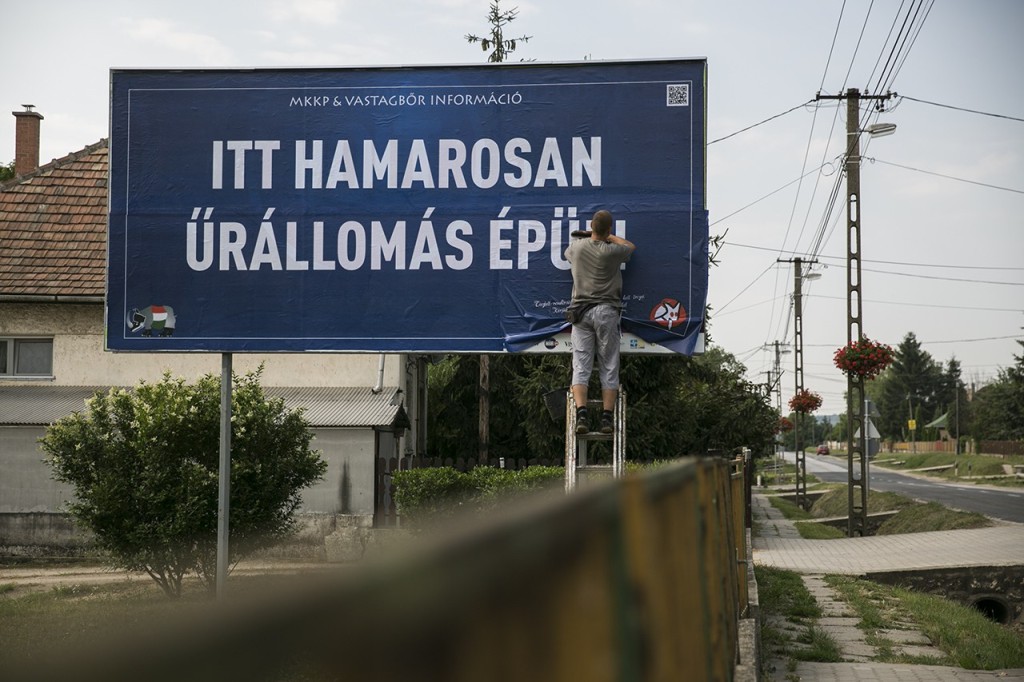Since the beginning of the refugee crisis the Hungarian government has been using this divisive issue for political gain and agitation. One of the most important elements of their communication strategy is the anti-refugee billboard campaign, actualized again by the forthcoming referendum on the EU refugee quotas. By inspecting this aspect of governmental communication we can gain some insight into the methods and governing style of the Fidesz-KDNP administration.
This xenophobic communication strategy began with the original anti-immigration campaign in the summer of 2015 in the middle of the refugee crisis. The government held a so-called “National Consultation on Immigration” which was basically a nationwide survey of all citizens. It was strongly biased and oversimplistic, and it is easy to assume that the creators on purpose mixed together different categories: migrants, economic migrants, immigrants, refugees and terrorists. Disguised as a consultation, it was actually a populist method, used by Fidesz-KDNP to increase the hostility towards immigrants and to gain support for their own policies. This may be supported by the fact that the government did not actually wait for the results of the questionnaire to start the poster campaign – government propaganda was already in full motion.
The billboards were designed in a simple style, which did not change much since 2015: a demagogic phrase written in white letters on a blue background. Some examples from last year: “If you come to Hungary, you can’t take the Hungarians’ jobs!” or “If you come to Hungary, you have to respect our culture!”. The campaign was obviously playing on xenophobic fears and stereotypes and was aimed at the voters rather than the immigrants themselves, as the slogans were written in Hungarian. One million questionnaires were sent back, and while the majority supported the anti-immigrant policies, it is hard to consider it as a representative sample.
In the September of 2015, another series of posters emerged, which used the National Consultation as a reference: “The people have decided: the country must be protected!”. Moreover, this May on the newest posters appeared even a direct message to the European Union: “Let’s send a message to Brussels, so they understand too!” and the campaign has started to heat up as the referendum about the refugee quota initiated by Viktor Orbán is getting closer.
Another important motivation for increasing anti-immigrant sentiments is winning over the far-right and radical voters to their side and weakening Jobbik. The anti-refugee rhetoric can be attractive to these voters, and Fidesz keeps reminding them with these posters that they will solve this issue and protect the Hungarian people. Before the migration crisis, the support for Fidesz was declining, a tendency that was halted when the campaign started.
The government spent huge sums of money on the poster campaigns so far: 1,280 million forints combined. According to some sources, they are planning to spend 3 billion forints on the campaign for the anti-immigration referendum. Large communications budgets are typical for Fidesz-KDNP because they built an inward economic system where the money from state financed tenders is flowing to friendly contractors. It has been suggested that the tender for the poster campaign was also won by Fidesz-friendly businesses.
The actions of the Fidesz-KDNP government are pushing the public towards dangerous sentiments. According to the latest public polls, a significant number of Hungarians considers the migrants repulsive. The government campaigns are not the sole reason for this situation but they did contribute to this problem. It is dangerous to use scare tactics all the time using outside enemies, be it the refugees, Brussels or George Soros. A responsible government should not ever use a humanitarian crisis that would require cooperation with other countries for momentary political gains because the damages it causes in society may be irreversible.



